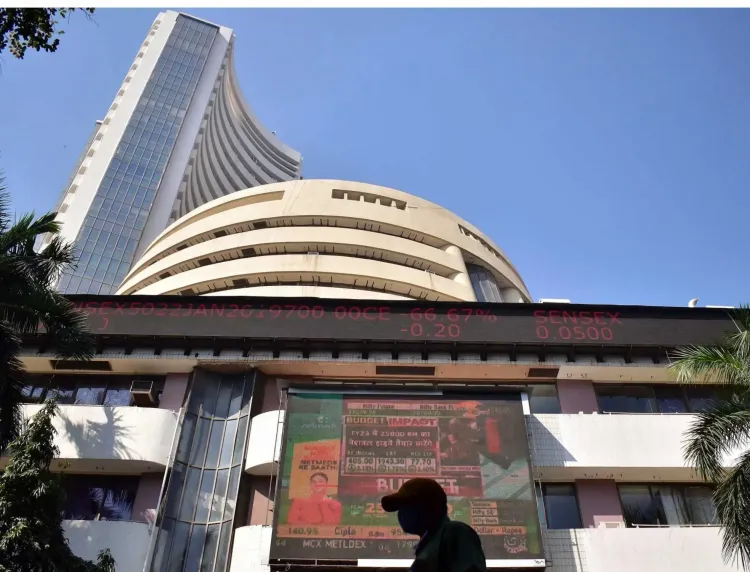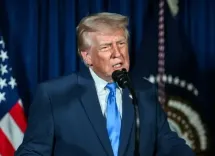Are Sensex and Nifty Declining Due to Uncertainty Around Trump's Tariffs?

Synopsis
Key Takeaways
- Indian markets opened lower due to trade policy uncertainty.
- Sensex down by **224 points** and Nifty by **65 points**.
- Midcap and smallcap stocks show marginal gains.
- Traders advised to adopt a cautious approach.
- Major gainers include HUL, Asian Paints, and Axis Bank.
Mumbai, July 11 (NationPress) The Indian stock market indices started on a lower note on Friday as uncertainty looms over US President Donald Trump's trade strategies. He continues to threaten increased tariffs across various sectors and nations.
By 9:20 am, the Sensex had dropped by 224 points or 0.27%, sitting at 82,965, while the Nifty lost 65 points or 0.26%, reaching 25,289.
There was slight buying interest noted in midcap and smallcap stocks, with the Nifty midcap 100 index rising by 60 points or 0.10% to 59,220 and the Nifty smallcap 100 index gaining 11 points or 0.06%, now at 18,967.
Analysts suggest that in this climate of uncertainty and high volatility, traders should proceed with a cautious “wait and watch” strategy, especially regarding leveraged positions. It is advised to book partial profits during market rallies and to utilize tight trailing stop-losses.
Within the Sensex companies, HUL, Asian Paints, Axis Bank, NTPC, Power Grid, Tata Steel, SBI, Adani Ports, Sun Pharma, and ITC emerged as major gainers. Conversely, TCS, Infosys, M&M, Tech Mahindra, HCL Tech, Bharti Airtel, Bajaj Finserv, and Trent were significant losers.
Sector-wise, PSU Bank, financial services, pharma, FMCG, and metal sectors were performing well, while auto, IT, realty, and media sectors faced declines.
In Asia, stock markets displayed mixed results. Japan's Nikkei 225 and South Korea's KOSPI remained flat, whereas China's Shanghai Composite and Hong Kong's Hang Seng climbed over 1%.
Overnight in the US, Wall Street's major indices, the S&P 500 and tech-heavy Nasdaq Composite, achieved record closing highs. The Dow Jones increased by 0.43%, while the S&P 500 gained 0.27%.
Foreign institutional investors (FIIs) purchased equities worth Rs 221 crore on July 10, while domestic institutional investors (DIIs) also bought equities worth Rs 591 crore on the same day.
Trump has declared a 35% tariff on Canada and has warned of higher levies if Ottawa retaliates, effective from August 1. Recently, he threatened to impose a 50% tariff on Brazilian imports unless Brazil drops legal actions against former President Bolsonaro.










